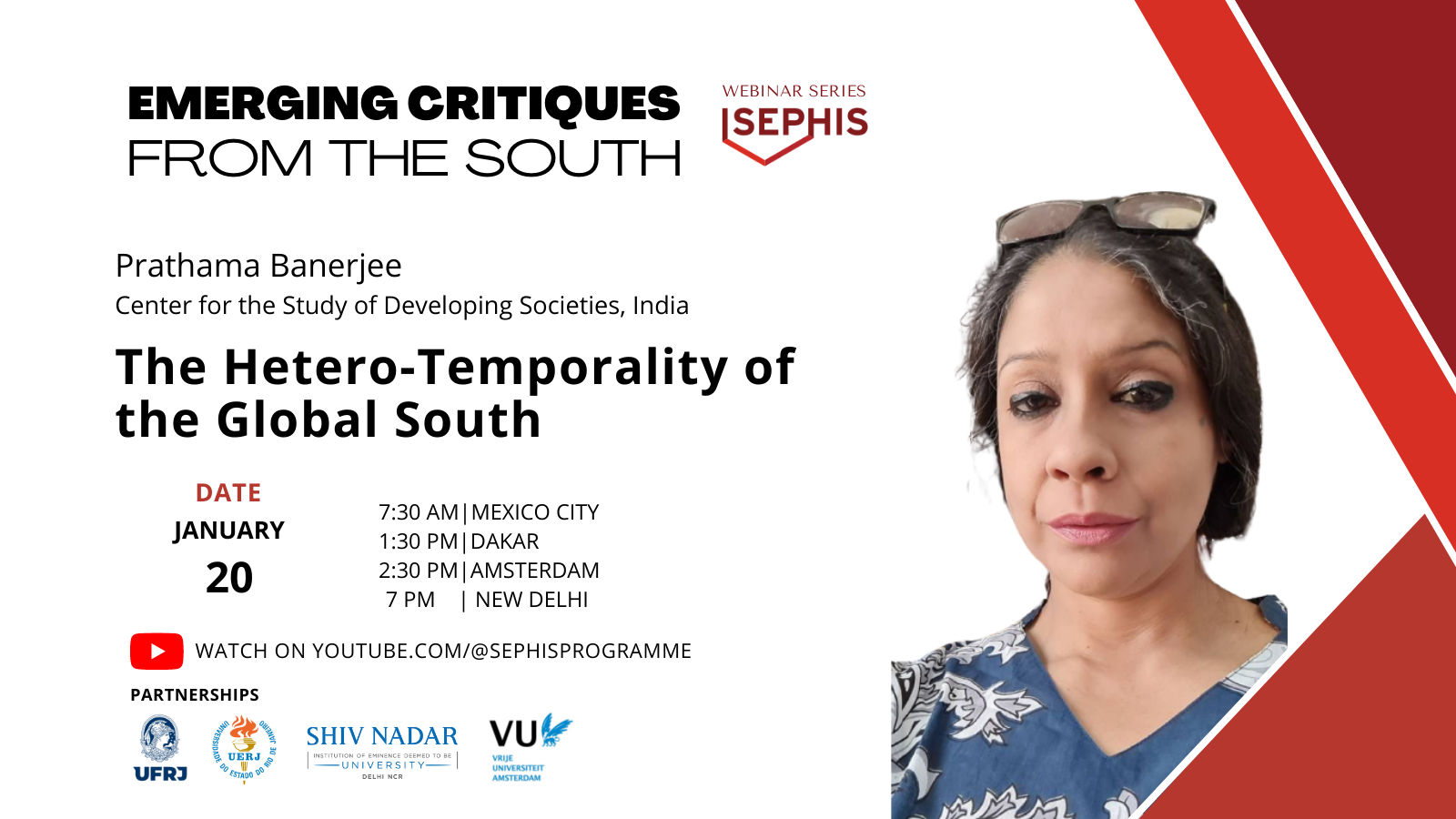Initiatives
Webinar Series- "The Hetero-Temporality of the Global South" with Prathama Banerjee
SEPHIS organizes the second session of its Webinar Series "Emerging Critiques from the South"

The Hetero-Temporality of the Global South
Prathama Banerjee, Centre for the Study of Developing Societies (CSDS), India.
Abstract:
The global South has been imagined in multiple ways – as a geopolitical region, a political economic formation, as a social movement cartography and as a network of distribution of subaltern subjects across nations and borders. In this presentation, I ask if we can imbue the concept of the global South with a temporal valence. Analogous to the conceptions of utopia and heterotopia but without the overwhelming spatial connotation of these terms, I propose that we think of the South as an encounter of multiple, heterogenous times which offer us resources in thinking aside of the hegemonic temporality of colonial modern history. I also suggest that the global South can be so reconvened after the global academy has passed through the moments of postcolonial and decolonial critique. We are now able to undertake the more positive and affirmative task of producing new perspectives and theories from out of multiple historical experiences in conversation with each other, an activity which must necessarily supplement the ongoing task of collective criticism. In that sense, I describe our temporal inhabitation of the global South as a mode of ‘thinking across traditions’ which can avoid false universalisms as well as puritanical claims of national authenticity.
About the Speaker:
Prathama Banerjee is a historian at the Centre for the Study of Developing Societies (CSDS). She works at the cusp of intellectual history, political philosophy, and literary studies. Her books include Politics of Time: ‘primitives’ and history-writing in a colonial society (OUP: 2006) and Elementary Aspects of the Political: histories from the global south (Duke University Press: 2020).
—
